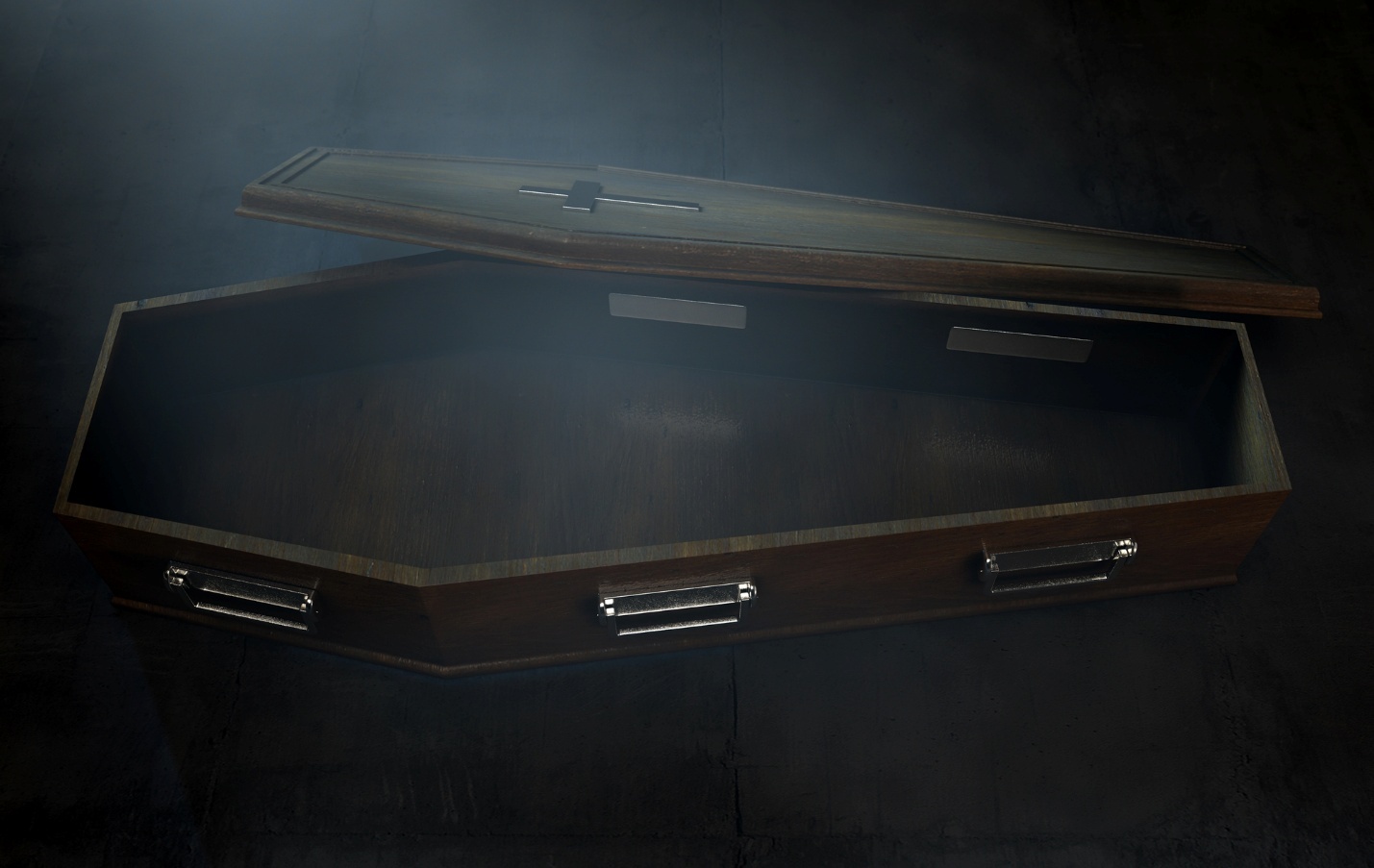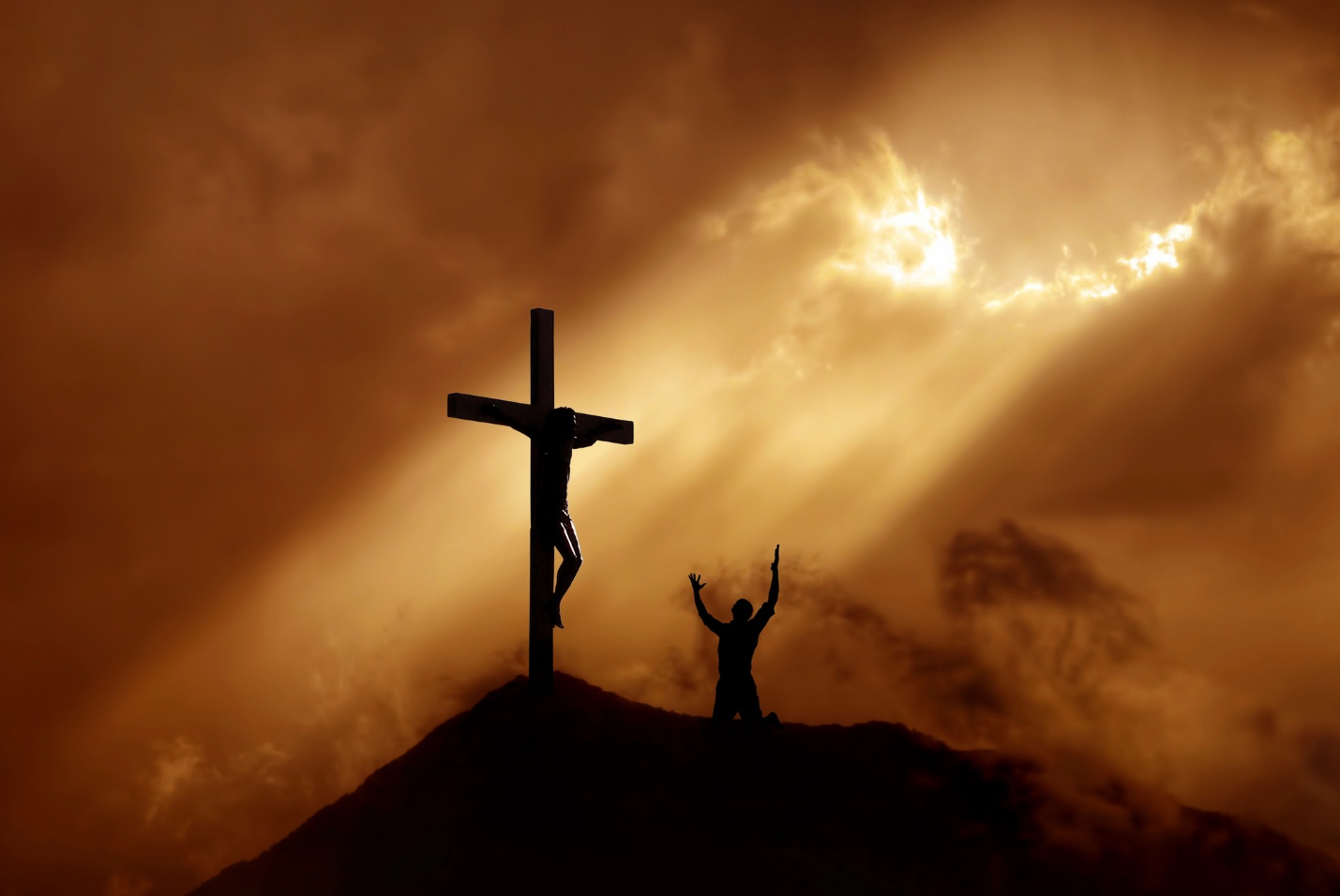BP 249

(photo credit: AMIR COHEN/REUTERS)
In recent months, the term, Iron Dome, has been in the news. Iron Dome refers to Israel’s air defense system that protects the country from aerial attack. Specifically, the Iron Dome intercepts and destroys artillery shells and rockets fired from Gaza and other anti-Israel territories. This defense system is especially designed to protect highly populated areas like Jerusalem from armaments fired from as far as 43 miles away. That distance may be even greater today since the system continues to be upgraded for maximum protection.
The United States government has recently declared that it will also develop a similar “dome” for the protection of this country. Inspired by the Israeli Iron Dome, the American Golden Dome—on a much larger scale—will consist of a “next-generation missile defense shield” that will protect America from advance threats posed by hypersonic, ballistic, and cruise missiles (Space News 35 Years, February 28, 2025). Critical to the Golden Dome aerial defense shield are space-based sensors that will detect incoming missiles and then trigger space-based “interceptors” to destroy the hostile projectiles.
So, why are we talking about the Iron and Golden Domes today? These domes are not dissimilar to human phenomena called psychological defenses. Men and women—most commonly those who have been hurt, abused, neglected, abandoned, harmed by human “ammunitions”—have experienced so much pain that they often develop “iron domes” during childhood years to protect themselves physically, relationally, and emotionally. When no one else offers protection, one must find a way to protect oneself.
There are problems associated with developing protective “domes” when one is a child. For example, a child (who tends to think more in black and white extremes with little nuance) who is harmed may grow up to overly protect her heart not just against the individual(s) who harmed her when she was young but even against those who hurt her without malice or intent when she becomes an adult.
Even more tragically, these children may create their own perception of the world around them based on their experiences of neglect, abuse, abandonment (physically and emotionally) as children that they carry with them into adulthood like some psychological time capsule. They may preemptively assume that the world is bad and so they will be quick to perceive what they perceive as harm from everyone around them. They may possess a 360-degree radar system highly vigilant to the slightest wounds from their environment.
Can you blame children for being anxious around everyone when they were not safe around their own parents? Probably not. However, unless children address their past wounds that complicate their adult existence, they will struggle mightily in every relationship.
The remainder of this post will consist of bullet points describing aspects and consequences of human psychological domes.

+ Those who are harmed in childhood may grow up to be combat ready—willing to fight at the slightest hint of any threat or hurt. These children as adults may also be “retreat ready”—prepared to hide at the first sign of anything that reminds them of their childhood abuse. In these two reactions to their environment, we witness the fight or flight phenomenon. We may even see the power of Post Traumatic Stress Disorder or other types of trauma responses.
+ Harm in childhood may be delivered through sins of commission like verbal, emotional, and sexual abuse or through sins of omission where a child is ignored, abandoned, or simply not seen due to parents who are distracted by other siblings, caring for their elderly parents or a spouse, major life events, building their own kingdoms, challenging and/or disabling physical conditions, addictions, or their own unresolved childhood harm that blows up into significant mental illness.
+ At the risk of being a bit redundant, we all must distinguish between perceived harm and true harm. Too often we run and hide or attack or defend to a fault when there is no danger.
+ Something to remember about boys and girls harmed in their childhood is that while they often grow up to be great observers, they are often not accurate interpreters of the world around them. As mentioned above, due to their early pain, their interpretive tools may be highly bent toward perceiving harm when none is present (or they have “only” been hurt).
+ It’s not always easy to discriminate between harm and hurt—both can touch an old wound that will awaken young pain. Nonetheless, it is important to attempt to distinguish one from the other. When someone harms you intentionally and maliciously, it is wise to protect oneself. When someone hurts you, he or she is not trying to annihilate you or use you or make you into an object.

+ Those who are always perceiving harm will not be able to receive constructive criticism or wise challenge even from God. They will perceive even these good things as harm and so will shoot the messengers who bring the good news. Here we see people, tragically, who become unteachable, unapproachable, and who project their badness into others and then hate them instead of looking inside themselves to identify sin and to grow. They can never be wrong. The final stop in this downward spiral of hate and projection is murder—either murder of the other person’s body or the other person’s spirit. We see so much of this reaction in our world today. Just read political news.
+ When it comes to defensive domes, it is crucial for the individual to remember the Well, the Leakage, and the Volcano. The Well is about moving toward, the Leakage often leads to moving away from, and the Volcano generates a moving against reaction. Be sure to move toward those who are safe instead of moving away from others and being alone with your pain. Hiding pain will lead to the rehearsal of the wrong and then to bitterness and then to the creation of a distorted reality that often is not true in the adult world. The old saying, That was then, this is now, is so important for these adult children to embrace. Do not generalize past pain onto the present world.
+ The danger of the psychological Iron Dome is that while these children as adults may have constructed a defense system that keeps all threats out, they may also have a dome that keeps all emotions inside. These strong suppressed emotions may eventually erode the human soul toward paranoia, splitting (they and the world are either all good or all bad), and full-blown personality disorders like narcissism, borderline, or even anti-social. Sadly, all these developments can be characterized by a view of the world that is highly distorted. To protect themselves, some children as adults must always see that they are right, and subsequently, everyone else is wrong. Ugh.
+ Expanding a bit on the previous thought, some children are compelled to hide or suppress their emotions due to fear of the environment’s unsafe reaction to anything they might say or do or feel. Anger, bitterness, resentment, hatred, rage, jealousy—even crying and needing and asking questions—may be forbidden and therefore must be hidden. These children will experience Leakage and possibly Volcanos as adults. Most mental illness is Leakage; so is some physical pain, sleeping issues, addictions, and passive aggressiveness.
+ A general rule: be careful not to be overprotected or to be under protected
+ Control may become a rigid part of the iron dome defense mechanism. (See blogpost 241 as an example.)
+ I think the familiar C.S. Lewis quote can apply to iron domes: “To love at all is to be vulnerable. Love anything and your heart will be wrung and possibly broken. If you want to make sure of keeping it intact you must give it to no one, not even an animal. Wrap it carefully round with hobbies and little luxuries; avoid all entanglements. Lock it up safe in the casket or coffin of your selfishness [an iron dome]. But in that casket, safe, dark, motionless, airless, it will change. It will not be broken; it will become unbreakable, impenetrable, irredeemable. To love is to be vulnerable.”

Beware of constructing impenetrable iron domes. They are synonymous with coffins.
+ Am I saying that we should remove all defenses from around us and be vulnerable to all attack? No. I am saying that we need to know the difference between being wisely protected in relationships and shutting everyone else out. I think Lewis said it well when he referred to selfishness. Sometimes our defensive domes can be so self-focused that they protect ourselves to a fault. We are so guarded that we can never allow ourselves to be close to anyone. How can we love from a such a guarded distance and when we are so obsessed about protecting ourselves?
+ The harm a child experiences when young does not have to be physical or even what we might call abusive. For example, the “harm” might be real or perceived favoritism by a parent toward a sibling that leads to deep hurt in the observing child. Over the years, rehearsing this favoritism may lead to deep bitterness, irritability, or isolationism (moving away from others).
+ Where does one’s relationship with God enter into this discussion of iron domes? Good question. The answer is that your relationship with God is the most important factor. Sometimes defensive domes can keep both God and people out–or at least keep them from getting too close. Wounded individuals can allow their rehearsed pain and anger to devolve into bitterness, resentment, hatred, and rage that will prompt them to deconstruct their faith and throw both parents (people in general, possibly) and God out of their lives. Today we often see some therapist encouraging their clients toward “going no contact,” or estrangement. We are so quick to perceive the badness in the other person (sometimes that is true) and so slow to see the log in our own eye.
+ Self-protection often means we are not trusting God for protection. We unwisely trust ourselves to protect ourselves and not God. Move toward God first, if possible, and experience his trust and safety. Then move toward others.

+ Satan hungers to separate people from God. Accordingly, he engages in any machination possible to drive people to construct iron domes of self-protection that will cut them off from God and others. His dark and devious destination is always separation. Isolation. Aloneness. Exile. He is dying to separate people from their God.
+ Romans 1:28-32 might, at least partially, be the result of building impenetrable iron domes against others and God:
”28 And since they did not see fit to acknowledge God [they cut him off due to rebellion and being narcissistically wounded by Him], God gave them up to a debased mind to do what ought not to be done. 29 They were filled with all manner of unrighteousness, evil, covetousness, malice. They are full of envy, murder, strife, deceit, maliciousness. They are gossips, 30 slanderers, haters of God, insolent, haughty, boastful, inventors of evil, disobedient to parents, 31 foolish, faithless, heartless, ruthless. 32 Though they know God’s righteous decree that those who practice such things deserve to die, they not only do them but give approval to those who practice them.”
+ If God is not pursued in times of woundedness and brought into the painful places, we humans can devolve away from him and toward destructive, rebellious, and even murderous and hateful attitudes toward others and God Himself. Once again, these may not be characterized by killing anyone’s body but may certainly lead to the murder of someone’s spirit through criticism, contempt, character assassination, rejection, abandonment, and projection of one’s own badness onto the child or the parent or the partner that is akin to murder.
+ Life is 5% what happens to us and 95% how we react to it.
+ Hiding one’s pain and wounds will lead to massive problems in future relationships. Although painful, you must clean the inside of the cup as Jesus said. You cannot simply ignore or distract or blame others. You must go into the dark places and be healed in the presence of God and safe others. Evil may come from your self choices that must be identified and reversed. God wants you to draw near. Satan wants you to hide and be alone.
In conclusion, when you are hurt, enraged, or afraid, do not fully trust yourself. Take time to decide if you have been harmed or hurt. Move toward others for wise counsel and self-knowledge. Do not cut everyone off except those who reinforce your constructed narrative. We live in a projecting and blaming and shaming world. Remember how God has forgiven you. Forgive others as He has forgiven you. You must forgive.

Remember the wise saying, “Forgiveness is almost a selfish act because of the great benefit to the one who forgives.” Forgiveness leads to relationship (if indeed the other person is trustworthy). Unforgiveness leads to toxic resentment and aloneness.
Protect yourself against those who harm you. Stay in relationship with those who hurt you. Everyone will hurt you sooner or later.
It may be true that the greatest harm to your body and soul is not any abuse that has happened to you or the ways others have sinned against you. The greatest harm may be your decision to self-protect in your bitterness, rage, and self-sufficiency to such a degree that you cut off God and others.
For then you will be alone. Safe, yes, but in self-imposed exile. As safe as being dead in a coffin.
Could it be that in this place of self-exile hell is not that far away? After all, hell is separation from God due to His holiness but very possibly also due to our rebellious self-autonomy and self-protection.
Be very wise and careful, then, what defensive domes you build. Some iron domes will keep even God’s love out.
Satan wins. You lose.
12 Put on then, as God’s chosen ones, holy and beloved, compassionate hearts, kindness, humility, meekness, and patience, 13 bearing with one another and, if one has a complaint against another, forgiving each other; as the Lord has forgiven you, so you also must forgive. 14 And above all these put on love, which binds everything together in perfect harmony” ~ Colossians 3
“ 15 For we do not have a high priest who is unable to sympathize with our weaknesses, but one who in every respect has been tempted as we are, yet without sin. 16 Let us then with confidence draw near to the throne of grace, that we may receive mercy and find grace to help in time of need” ~ Hebrews 4
“28 Come to me . . . for I am gentle and lowly in heart, and you will find rest for your souls” ~ Matthew 11:28a, 29

